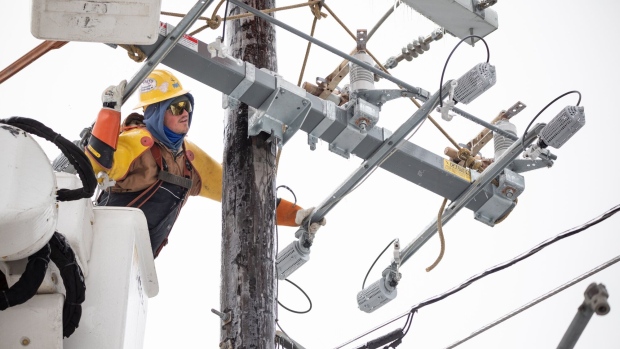May 31, 2023
Texas Falls Short of Its Big Grid Overhaul After Deadly Winter Storm
, Bloomberg News

(Bloomberg) -- Texas lawmakers had ambitious plans this year to overhaul the state’s electricity market with proposals that favored fossil-fuel plants and hampered renewable-power development.
But most of those efforts fizzled out.
Legislators ditched a measure that would have imposed harsh permitting requirements on new solar and wind projects. They watered down a proposal that would have saddled renewables with potentially billions of dollars of costs for backup capacity to just a study of the concept. And they scaled back a bill that would have required the state to fund the construction of emergency natural gas-fired power plants to a $10 billion low-interest loan and grant program.
Lawmakers did sign off on a program to pay natural gas and coal generators for being available during times of grid stress, although they capped those incentives at an annual net cost of $1 billion. They also advanced a bill that will allow tax breaks for manufacturing plants, excluding renewable projects.
Read More: GOP Fights Solar Boom That’s Made Texas King of Clean Energy
The outcome of the regular legislative session, which ended this week, has implications for the future of the state’s $32 billion power market, which needs new investments after its near-collapse during a deadly winter storm in 2021 and last year’s summer record-breaking heat waves. Texas’s booming population growth is heaping more pressure on the system.
“The renewable energy industry dodged most of the bullets,” said Doug Lewin, an energy expert and president of Stoic Energy Consulting. “The legislature did nothing to directly address the root causes of outages of the 2021 winter storm. Instead, it doubled down in the infrastructure that triggered it.”
At the start of this year’s legislative session, state regulators proposed a so-called performance credit mechanism that would financially reward generators for showing up during times of supply scarcity. Consumers advocates and other experts raised concerns about the high cost of the proposal, saying it could raise prices for the end-users. Lawmakers capped the net cost to consumers to $1 billion annually.
The state’s big power generators, including Vistra Corp. and NRG Energy Inc., opposed an overall cost cap, warning that it could deter investments in new plants and halt projects that have already been announced.
Texas Governor Greg Abbott, a Republican, had voiced support for the performance credit payment program for generators. On Monday, Abbott said the state had passed successful legislation including “the increase in electric power generation to secure the Texas power grid.”
Meanwhile, clean energy developers and environmental advocates said they were relieved to have stopped some of the most punitive anti-renewable legislation. A proposal for renewable developers to secure expensive backup capacity was altered to require that to be done by generation portfolios rather than specific units by 2027.
--With assistance from Cailley LaPara.
©2023 Bloomberg L.P.




